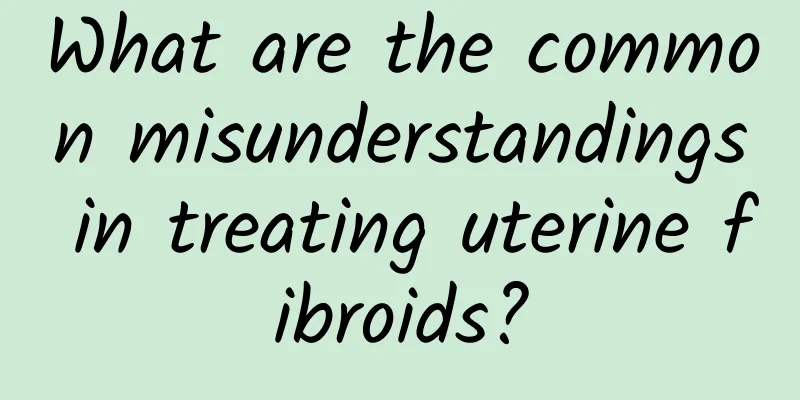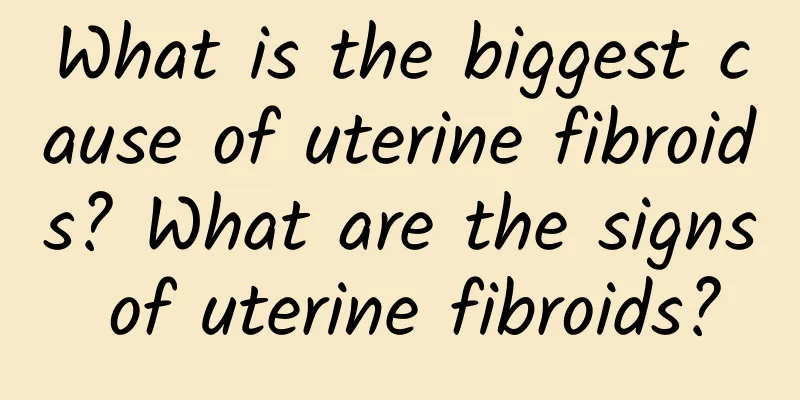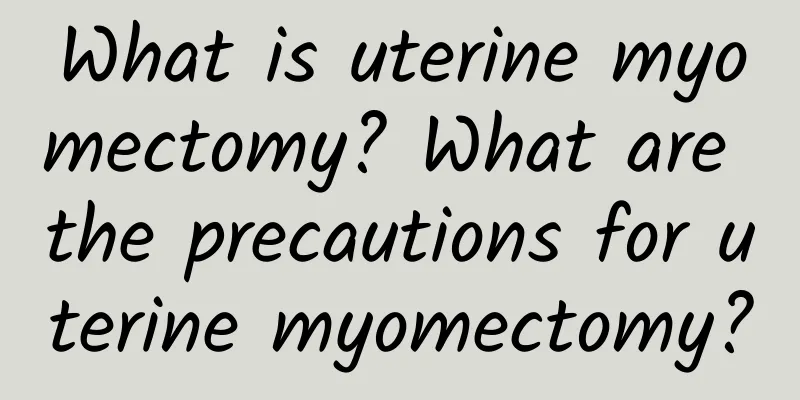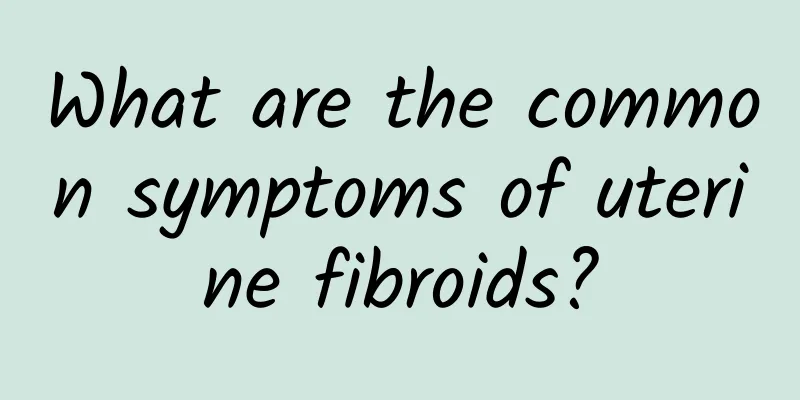Why do uterine fibroids cause fatigue and fatigue? Why do uterine fibroids cause fatigue and fatigue?
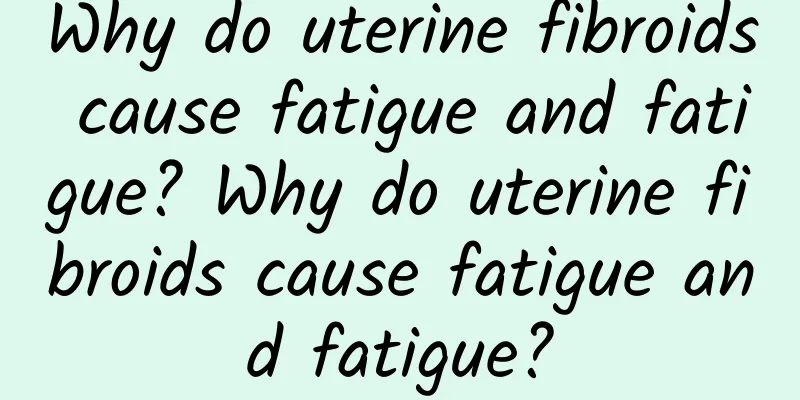
|
Why do uterine fibroids cause fatigue and fatigue? Why do uterine fibroids cause fatigue and fatigue? Uterine fibroids are benign tumors that grow in the myometrium of the uterus. For many women, uterine fibroids are a common problem that can cause a lot of trouble in their lives. In addition to causing pain and menstrual irregularities, some patients also experience symptoms of fatigue. So, why do uterine fibroids cause fatigue? First of all, it is important to understand that uterine fibroids are formed by the proliferation of smooth muscle cells in the endometrium. These tumors usually grow in the muscle tissue of the uterine wall and increase in size during pregnancy and menopause. The size and number of uterine fibroids vary from woman to woman. Some women may have only one small tumor, while others may have multiple large tumors. An important problem that may arise as uterine fibroids grow is hemorrhagic anemia. Uterine fibroids are nourished by the small arteries and veins that supply blood to the endometrium. As fibroids grow, they affect the blood supply to the uterine wall, causing a lack of oxygen and poor blood circulation in the endometrium. Lack of oxygen and circulation problems can cause pain and discomfort, as well as symptoms of fatigue and weakness. Uterine fibroids may also cause feelings of fatigue and tiredness by putting pressure on surrounding tissues and organs. As fibroids grow larger, they may put pressure on organs such as the bladder, rectum, and abdominal cavity. This pressure may make urination and bowel movements difficult, which can cause an overall feeling of fatigue. It is worth mentioning that uterine fibroids may also have a negative impact on the patient's mood, leading to feelings of fatigue. Many women with uterine fibroids feel anxious and depressed when faced with the discomfort and reduced quality of life caused by uterine fibroids. This emotional stress may affect the body's energy levels and make the patient feel tired. In summary, there are many reasons why uterine fibroids cause fatigue and weakness. Hemorrhagic anemia, compression of surrounding organs, and emotional stress may all have adverse effects on the patient's physical condition. In order to alleviate these symptoms, patients can take certain treatment measures, such as drug therapy, surgical resection, or conservative treatment. Popular Science on "Why Uterine Fibroids Cause Fatigue and Exhaustion" The reasons for fatigue and weakness caused by uterine fibroids include hemorrhagic anemia, pressure on surrounding organs, and emotional stress. Hemorrhagic anemia is caused by fibroids blocking the blood supply to the endometrium, while pressure on surrounding organs can cause problems such as difficulty urinating and defecating. In addition, uterine fibroids can also cause emotional stress to patients, further affecting their physical and mental state. To alleviate these symptoms, patients can take some treatment measures, such as medication, surgical resection, or conservative treatment to improve the quality of life and reduce fatigue. At the same time, it is also important to check your physical health regularly and maintain a positive and optimistic attitude. |
<<: What tissues form uterine fibroids? How are uterine fibroids formed? What are the causes?
Recommend
How much does it cost to treat uterine fibroids?
How much does it cost to treat uterine fibroids? ...
What should I pay attention to if I have a miscarriage? What are the symptoms of miscarriage?
Most miscarriages are accidental, and about 70% o...
Slimming battle! Nutritionists share 3 healthy weight loss tips to get rid of your big belly and avoid gaining weight again
When it comes to losing weight, most people hope ...
What medicine can Gong Yanping be taken with to treat uterine fibroids? What medicine can Gong Yanping be taken with to treat uterine fibroids?
What medicine should Gong Yan Ping be taken with ...
How much does an artificial abortion cost?
When the warmth reaches its climax, the little li...
Treatment of dysfunctional uterine bleeding
Treatments for functional uterine bleeding includ...
Understand the etiology and pathogenesis of vulvar leukoplakia.
Did you know that the most common sites for vulva...
How much does it cost to treat cervicitis?
How much does it cost to treat cervicitis? When c...
How to get pregnant with adenomyosis
Adenomyosis is a very common gynecological diseas...
There are many factors that lead to dysmenorrhea.
I think women should be familiar with dysmenorrhe...
Stage actor Deng Jiuyun shares her secrets to maintaining good figure (Part 2)
Now, I am continuing to experiment to see if I ca...
What are the traditional Chinese medicines for treating ovarian cysts?
What are the traditional Chinese medicines for tr...
What is the treatment method for female vaginitis?
What are the treatment methods for female vaginit...
What to eat after uterine fibroid surgery? How to adjust your diet after uterine fibroid surgery?
The location of uterine fibroids is uncertain and...
Can fasting for breakfast help you lose weight? What a big misunderstanding! Doctor: Three principles of healthy breakfast can help you lose weight and stay away from diabetes
Will you get fatter or thinner if you skip breakf...


